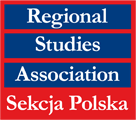CFP
BUILDING ADMINISTRATIVE CAPACITIES FOR COHESION POLICY
THURSDAY 21-FRIDAY 22 NOVEMBER 2019 (LUNCHTIME TO LUNCHTIME)
TU DELFT
DEADLINE FOR SUBMISSION OF ABSTRACTS: 30 SEPTEMBER 2019
There is a wide body of research that emphasises the importance of institutions for effective regional development. Part of this research has focused specifically on the role of administrative capacity as a factor for the effectiveness of ESIF programmes and concluded that effectiveness is conditional on the ability of national, regional and local administrations to design robust strategies, allocate resources effectively and administer EU funding efficiently (amongst the most recent, Hagemann 2019; Di Cataldo, M. and Rodriguez-Pose 2017; Mendez and Bachtler 2017; Surubaru 2017; Tosun 2014; Bachtler et al 2013; Terracciano and Graziano 2013; Lorvi 2013; Filippetti and Reggi 2012; Farole et al 2011). This research has prompted policymakers to pay more attention to the development of institutional and administrative capacity. Within cohesion policy, in particular, administrative capacity building in the current, 2014-2020, period is supported through a variety of means, including Technical Assistance, Thematic Objective 11 (“institutional capacity”), Thematic Objective 2 (“e-government, open data”), peer learning through exchanges and networks (e.g. ‘European Week of Regions and Cities’, ‘Taiex Peer-to-Peer’), and others. Yet, there is still a limited understanding of the effectiveness of these measures, of the sustainability of the capacity building outcomes achieved, and of the wider institutional and administrative capacity needs of public administrations and stakeholders. Against this background, we are inviting papers that explore the following research questions:
- What types of measures do current ESIF programmes foresee to strengthen administrative capacity at different territorial levels? Are they achieving their objectives?
- How synergic are the administrative capacity building (ACB) measures supported by the ESI Funds with other ACB initiatives and PA reform programmes implemented by the Member States?
- Have the implemented ACB measures been effective and comprehensive?
- Do current ACB measures effectively address cross-sectoral policy design and the challenges entailed by new thematic priorities (e.g. digitalisation, the SDGs, smart specialisation, poverty, social inclusion, the integration of migrants etc.)?
- Which factors impact on the effectiveness of ACB activities?
- Which specific administrative capacity building aspects should be fostered in the 2021-2027 programming period? What types of innovations should be introduced?
KEYNOTE SPEAKERS
Professor John Bachtler (University of Strathclyde) and an official from the European Commission (invited - tbc) will deliver keynote speeches.
PAPER PROPOSALS
We invite theoretically-rooted, research-based paper proposals from both scholars and practitioners which address the questions listed above. Comparative papers and papers that employ original research designs and methods will be particularly welcome.
Proposals should be submitted by email to Marcin Dabrowski (m.m.dabrowski@tudelft.nl), Ekaterina Domorenok (ekaterina.domorenok@unipd.it) and Laura Polverari (laura.polverari@strath.ac.uk) including:
- a PowerPoint file of maximum 3 slides, outlining: conceptual framework, research questions and design, and key findings;
- an abstract of up to 500 words, summarising the research and clearly outlining its originality and contribution to the scholarly and/or policy debates;
- a short bio of up to 150 words accompanied by full contact details of the Author(s).
CONTRIBUTIONS AND OUTPUTS
- Speakers will be encouraged to use images, diagrams, infographics, etc. in their presentations.
- Presentations will be limited to 15 minutes to allow room for discussants’ feedback and debate.
- Full papers, of max 7,000 words all-inclusive, will be due by 1 November 2019.
- An edited volume/eBook or a special issue in a chosen journal will be published following the event.
PRACTICAL INFORMATION
This workshop will be held under the auspices of the Regional Studies Association’s Research Network on EU Cohesion Policy, co-organised with the Network’s partners and hosted by TU Delft. More information about the Network can be found on the RSA website and on Facebook.
Main Organisers for this workshop are: Marcin Dąbrowski (TU Delft), as local organiser, and Ekaterina Domorenok (University of Padua) and Laura Polverari (University of Strathclyde), as academic convenors. Co-organisers include: Nicola Francesco Dotti (VUB, BE), Piotr Idczak & Ida Musiałkowska (Poznań University of Economics & Business, PL), Jiannis Kaucic (University of Vienna, AT), Oto Potluka (University of Basel, CH).
Participation in the event is free of charge. Participants not presenting papers are very welcome, but will need to register. Lunch and refreshments will be provided, and speakers will be invited to workshop dinner.
Venue: TU Delft, Faculty of Architecture and the Built Environment.
Thanks to the financial support from the RSA several travel bursaries can be offered. Bursaries will be offered on a ‘first come, first served basis’, starting with the date of publication of this call. To enquire about bursaries and any other practical information about the workshop please contact Marcin Dąbrowski (m.m.dabrowski@tudelft.nl).[1] For any other enquiries please contact: Ekaterina Domorenok (ekaterina.domorenok@unipd.it) or Laura Polverari (laura.polverari@strath.ac.uk ).
[1] Please note that bursaries can only be offered to participants who are members of the RSA and fulfil one of the following eligibility criteria: (a) are student or early career members of RSA; (b) are associate (retired) members of RSA; (c) are RSA member working in a Band B, C or D country (see RSA website for more information).

